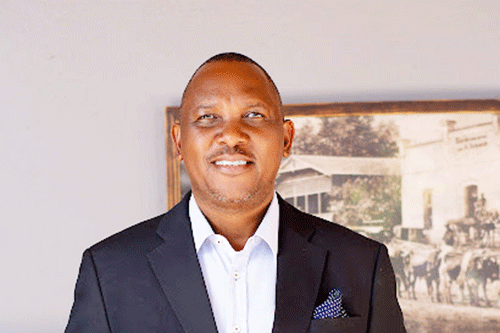Lahja Nashuuta
Delivering his maiden speech in the National Assembly this week was teacher, technocrat and politician – Austin Samupwa.
He wasted no time on Tuesday, saying there is a need for a comprehensive approach to affordable housing.
“We must advocate for the construction of thousands of affordable homes, with a focus on social housing and rural electrification.
“Beyond simply building houses, we must ensure these homes come with essential services: clean water, sanitation and electricity,” he said.
Samupwa emphasised the need to accelerate the pace of housing construction, calling for stronger public-private partnerships, increased government investment and easier access to financing for ordinary Namibians.
“Most importantly, rural areas must not be left behind. We need to strengthen national programmes focused on rural electrification, road construction and clean water provision,” said the former Swapo executive director.
According to the latest development report, the Ministry of Urban and Rural Development has been allocated a N$2.7 billion budget for the 2025/26 financial year.
Of this, N$1.1 billion is earmarked for housing delivery, supporting initiatives such as the Mass Housing Development Programme, Build Together Programme, Shack Dwellers Federation of Namibia and the National Housing Enterprise (NHE).
An additional N$304 million is allocated for the upgrading of informal settlements nationwide, and N$30 million is designated for the installation of prepaid water and electricity meters in local authorities and settlement areas.
Last year, then Minister of Urban and Rural Development Erastus Uutoni reported that 4,446 housing units had been completed and handed over across various regions under the Mass Housing Development Programme, which was initiated by Cabinet in 2013 and launched in 2014.
Another Swapo lawmaker, Tobie Aupindi, issued a stern warning to the government regarding the potential dangers posed by the booming petroleum industry in Namibia.
“I can forewarn that a strategic shift must be instituted to safeguard the country’s sovereignty and territorial integrity. The current trajectory is not sustainable,” he said. While oil companies have been advancing aggressive petroleum exploration and large-scale geophysical programmes, Aupindi pointed out that Namibia’s legal and policy framework, strategic planning, national vision and security measures are lagging far behind.
“This is a clear and present danger to the country. Namibia needs to act now before it’s too late,” he stressed. “The President’s decision to bring oil and gas under the praesidium is highly commendable. However, much more needs to be done to mitigate the risks typically associated with petroleum exploration and production.”
He further warned about potential clashes over control of oil transit routes, such as pipelines and shipping lanes, and noted that the presence of foreign oil workers in these regions often stirs local grievances sometimes exploited by extremist groups. Oil, he cautioned, can also become a barrier to multilateral cooperation on regional and global security matters.
Redline
Aupindi also touched on the controversial Veterinary Cordon Fence, known as the redline.
“We discussed this issue in one of the standing committees during the 7th sitting. We cannot continue to operate two economic systems – one for the rural poor and another for the commercial elite,” he said.
He challenged claims that meat from the northern communal areas is unfit for consumption, pointing out that both residents and tourists in the north consume it regularly.
“If the concern is about protecting the European meat market, then quarantine procedures and certification processes must be enhanced. Once standards are met, farmers should be allowed to move their animals freely, whether for personal or commercial use,” he argued. “As an interim measure, we must be bold and investigate whether the northern farming community can meet its own demand. If so, we should also consider restricting the sale of commercial area meat in the communal north until this discriminatory system is completely dismantled,” the former Namibia Wildlife Resorts boss said.
-lnashuuta@nepc.com.na



